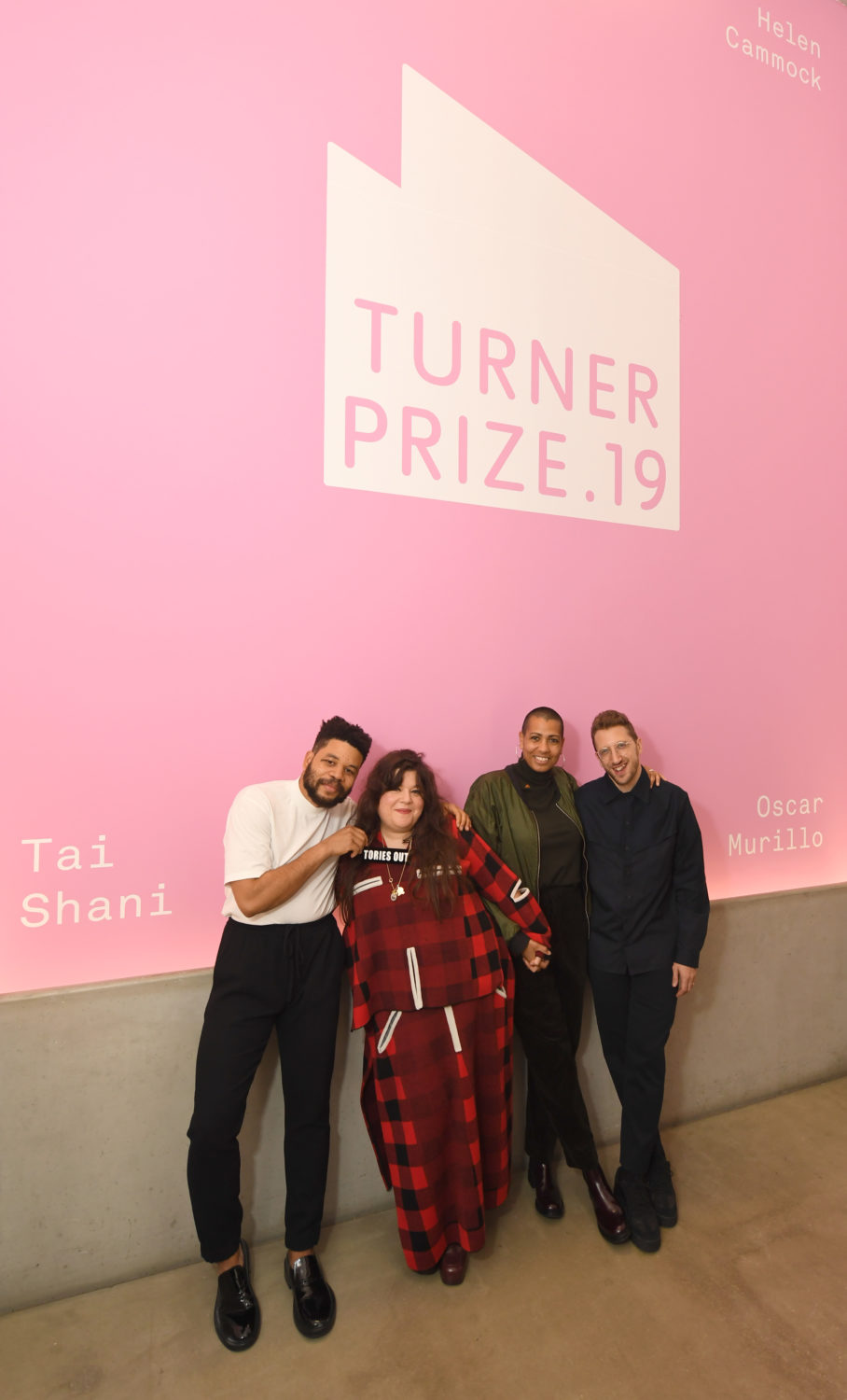
The four nominees of the 2019 Turner Prize surprised everyone watching the ceremony when they accepted the UK’s most prestigious award as a collective. The morning after, their politically-engaged gesture of solidarity is proving as divisive as the UK general election.
Artists Lawrence Abu Hamdan, Helen Cammock, Oscar Murillo, and Tai Shani wrote to the Turner Prize jury asking be considered as a collective “to make a statement in the name of commonality, multiplicity and solidarity—in art as in society.” The judges accepted the artists’ wishes by a unanimous decision. The four artists have agreed to share the pooled prize money, each receiving £10,000 ($13,000). Some see the move as radical and timely while others are more sceptical.
This morning, dealers sent out their congratulatory emails to share the news of their artists’ wins. In the case of David Zwirner and Isabella Bortolozzi, the four artists were congratulated, though the alphabetical order of the names was rearranged to put their represented artist, Murillo, at the front of the line-up. Gallery Sfeir-Semler of Beirut congratulated its artist, Abu Hamdan, spotlighting him as a Turner Prize “co-winner.”
The subversion of the competitive prize has been welcomed by many in a time of political division and upheaval in Britain, as Brexit dominates this month’s general election.
The artists’ political message, tacitly endorsed by the judges, was not lost on cultural critics at home and abroad. “[T]he Turner Prize forms the government of national unity that the House of Commons could not realize,” tweeted New York Times critic Jason Farago, referring to the political stalemate in Parliament this summer and fall.
It will be not be lost on those familiar with Margate that a majority in the seaside town on the Kent coast of England voted in favor of Brexit. The political sympathy of two of the artists was evident at the ceremony: Murillo wore a “Vote Labour” badge, and Tai Shani showed off her “Tories Out” necklace.
Former Turner prize judge and ex-editorial director of Frieze magazine, Jennifer Higgie, took to Twitter to voice her support: “This is great. To paraphrase the late Stuart Morgan, art is not a horse race,” she wrote. On the other side of the coin, the Sunday Times art critic Waldemar Januszczak, who helped transform the Turner Prize into a headline-grabbing award back in the early 1990s, took a very different view. “How silly it has all become,” he tweeted.
Another sceptic, the art critic JJ Charlesworth, tweeted: “But the prize is awarded for the best art, not the best politics.”
This is not the first time that a cultural award has opted to divide a prize among the contenders. This year, the UK’s leading literary award, the Booker Prize, gave the prize to Margaret Atwood and Bernardine Evaristo. This prompted Will Gompertz, BBC’s arts editor who is an ex-Tate senior manager, to suggest that it might mean that prizes like the Booker and the Turner have reached their “sell-by date.” Gompertz warns that the jury’s decision could “complicate matters for future juries, and possibly, the prize itself.”
Art Review‘s editor-at-large, Oliver Basciano, who is a former Turner prize judge, tweeted his concern about the award’s future. Choosing the winner was always secondary to the shortlisting, he wrote on social media, adding. “But it is a prize.” He wondered if the 2019 award puts “the whole enterprise into question.”
Or maybe it is time for awards like the Turner Prize to reconsider their format. “The Turner has always been premised on there being a winner. The award garners publicity, feeds the bookies and, apparently, generates discussion,” writes the Guardian‘s art critic Adrian Searle. “But artists whose works and attitudes have nothing to do with one another are often pitted against one another for no good reason…. It is the beginning of, rather than an end to, the discussion of this year’s prize. Good for them.”